When you’re trying to eat healthy, it’s easy to assume that certain foods are better for you just because they’re marketed as healthy. However, many so-called “healthy” foods are loaded with hidden sugars that can affect your health in the long run. These added sugars may not always be obvious on the label, so it’s important to be aware of what you’re consuming. Here’s a list of 14 foods that are often touted as healthy but could be packed with more sugar than you think.
1. Salad Dressings
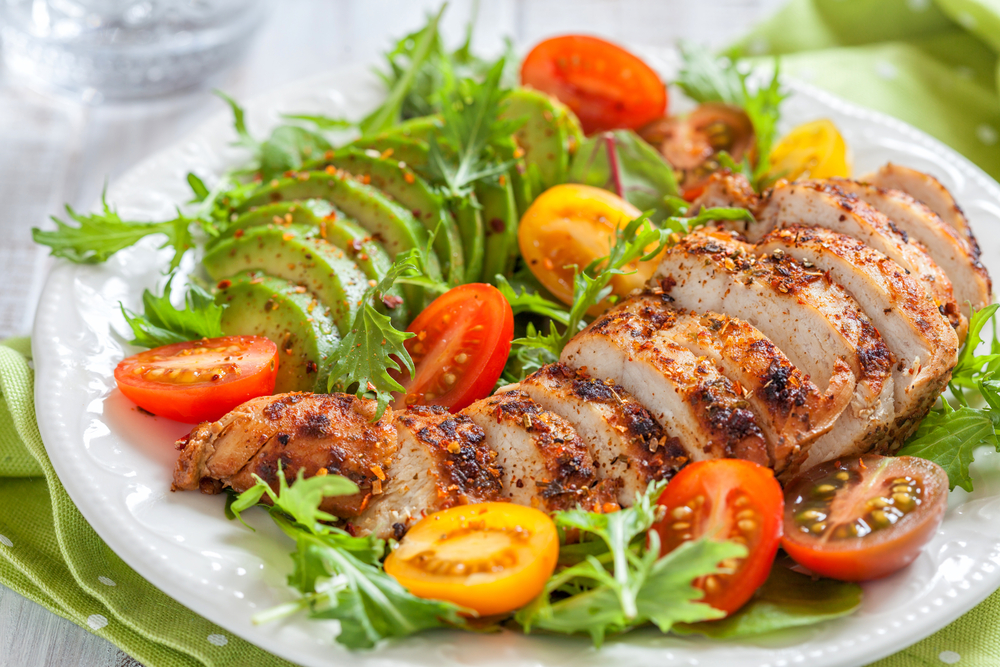
Salads are a staple in many healthy diets, but the dressing you use can turn your nutritious meal into a sugar bomb. Many store-bought salad dressings contain added sugars, often hidden in ingredients like high-fructose corn syrup or honey. According to Continental Hospitals, these sugars not only add unnecessary calories but can also negate the benefits of the fresh vegetables in your salad.
Interestingly, even dressings marketed as “light” or “low-fat” tend to have high sugar content. This is because when fat is reduced in a product, sugar is often added to compensate for the loss of flavor. For a healthier option, consider making your own salad dressing using olive oil, vinegar, and mustard, or simply squeeze some fresh lemon juice on your salad for a refreshing, sugar-free alternative. You can find simple recipes for homemade salad dressings at Love and Lemons, which offer a healthier and more flavorful way to enjoy your salads.
2. Granola Bars
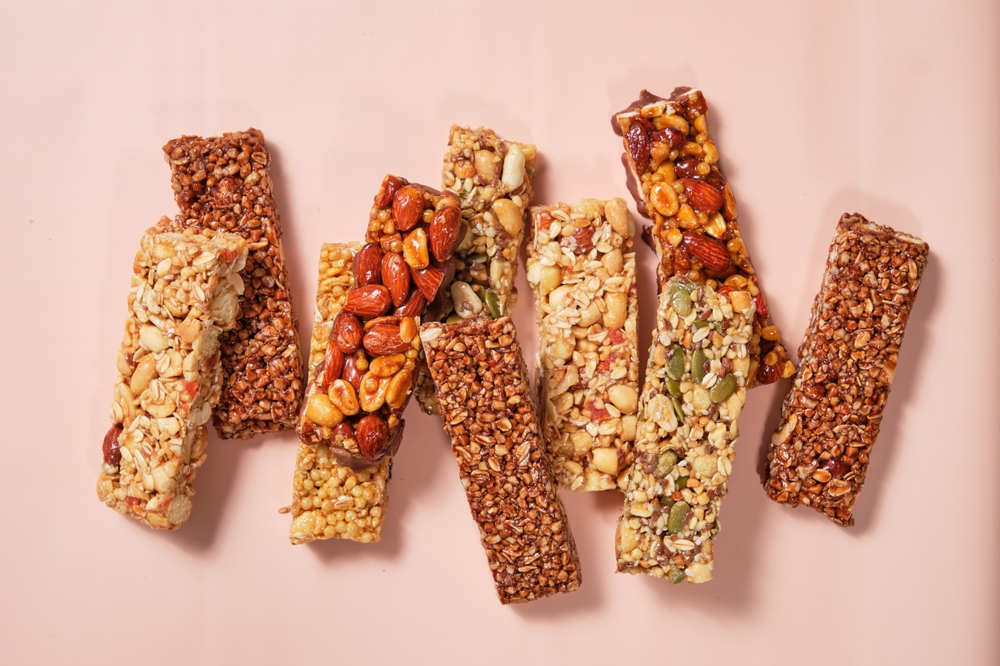
Granola bars are often marketed as a convenient, healthy snack packed with whole grains and fiber. However, many of these bars contain significant amounts of added sugar, sometimes more than a candy bar. While they may seem like a good source of energy, the high sugar content can cause spikes in blood sugar levels, leaving you feeling sluggish shortly after eating them. According to Healthline, it’s crucial to check the ingredient list and choose brands with little to no added sugars.
What’s surprising is that even “natural” granola bars made with ingredients like honey, maple syrup, or agave can still contain a high sugar content. These natural sweeteners are often just as caloric and can have a similar effect on blood sugar levels. If you’re looking for a healthier snack, consider making your granola bars at home with minimal sugar or simply opting for a handful of nuts and seeds.
3. Flavored Yogurt
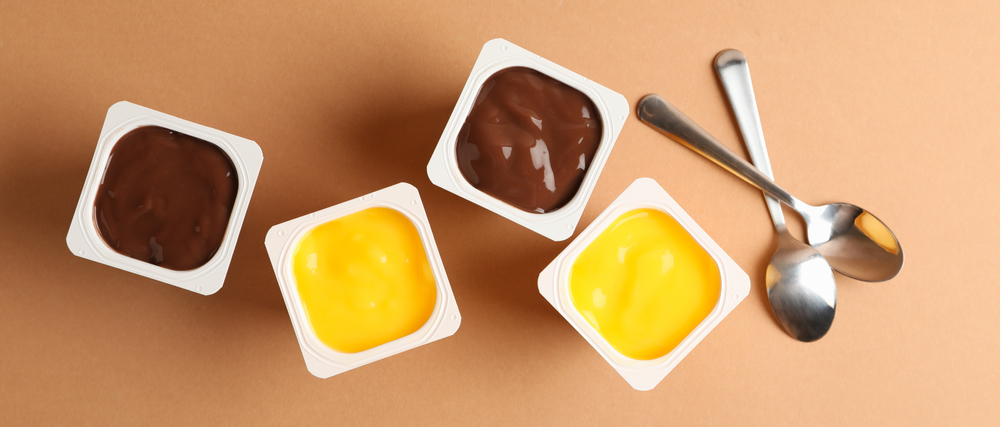
Yogurt is often considered a healthy choice due to its probiotic content and high protein. However, flavored yogurts—especially low-fat varieties—are often loaded with hidden sugars to make them taste better. A single serving of flavored yogurt can contain as much sugar as a can of soda. According to WebMD, to keep your sugar intake in check, opt for plain Greek yogurt and add fresh fruit or a drizzle of honey yourself.
Additionally, even some brands of “low-sugar” or “light” yogurt can still contain more sugar than you’d expect. While these versions may have fewer calories, the amount of artificial sweeteners or added sugar can still cause unwanted side effects, such as weight gain and increased cravings. Read the nutrition label carefully and choose yogurt with little to no added sugars for the most health benefits.
4. Fruit Juices
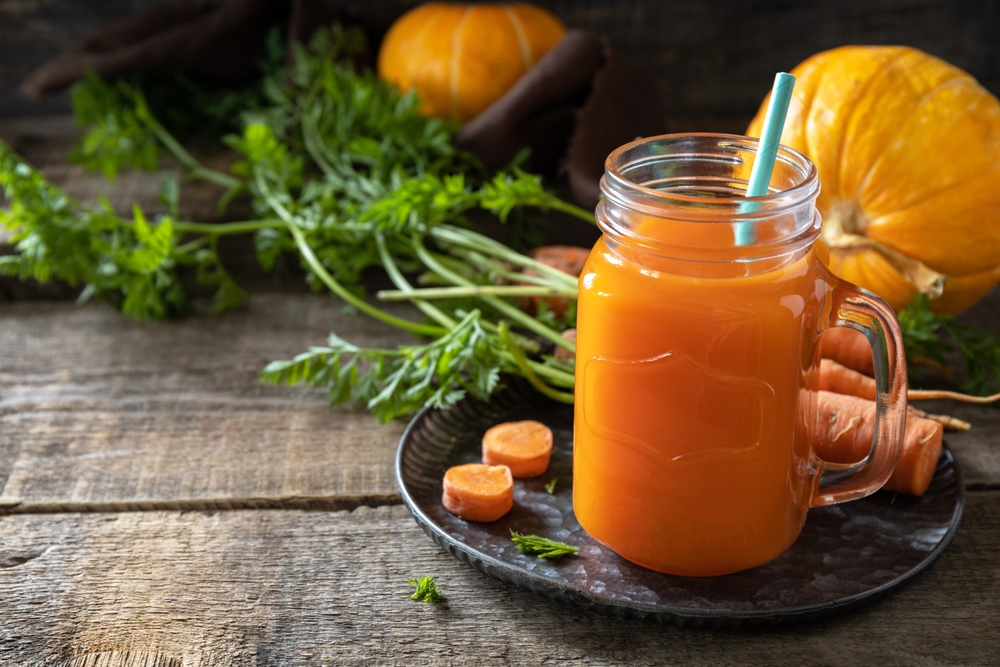
Fruit juices are often seen as a healthy beverage choice because they contain vitamins and minerals, especially vitamin C. However, even 100% fruit juices can be loaded with hidden sugars, especially if the juice is concentrated or has added sweeteners. Even if juice is made from fresh fruit, it still lacks the fiber found in whole fruit, which can lead to a quick spike in blood sugar. According to Cleveland Clinic, a single glass of orange juice contains about 23 grams of sugar, which is close to the daily recommended limit.
What’s more concerning is that juice drinks labeled as “healthy” often contain added sugars or high-fructose corn syrup, making them just as sugary as soda. It’s always better to eat whole fruit instead of drinking juice, as it provides more fiber and fewer sugar spikes. If you crave juice, consider diluting it with water or opting for vegetable-based juices that are naturally lower in sugar.
5. Smoothies
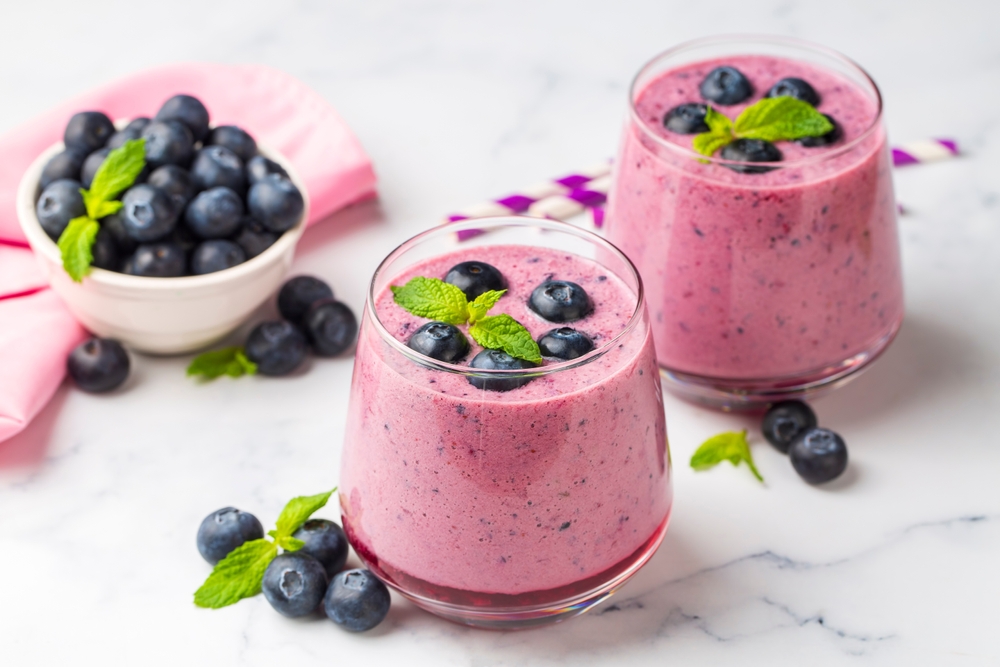
Smoothies are another food that many people consider to be healthy. While they can be packed with nutrients, they’re also often full of hidden sugars, especially when store-bought or from chain smoothie bars. Many smoothies contain sweetened yogurt, fruit juices, or syrups, contributing to their high sugar content. According to Practo, many fruit smoothies contain added sugars and high-fructose corn syrup that can sabotage your diet rather than help you lose weight.
Even if you make a smoothie at home, it’s easy to go overboard with sugary fruits like bananas and pineapples. To keep your smoothies healthy, focus on including vegetables like spinach, kale, and cucumber, and limit the amount of high-sugar fruits. You can also add healthy fats like avocado or chia seeds to increase the nutritional value without adding excess sugar. If you’re buying a smoothie, ask for one without any added sugars or syrups to ensure it’s as healthy as it appears.
6. Canned Fruit
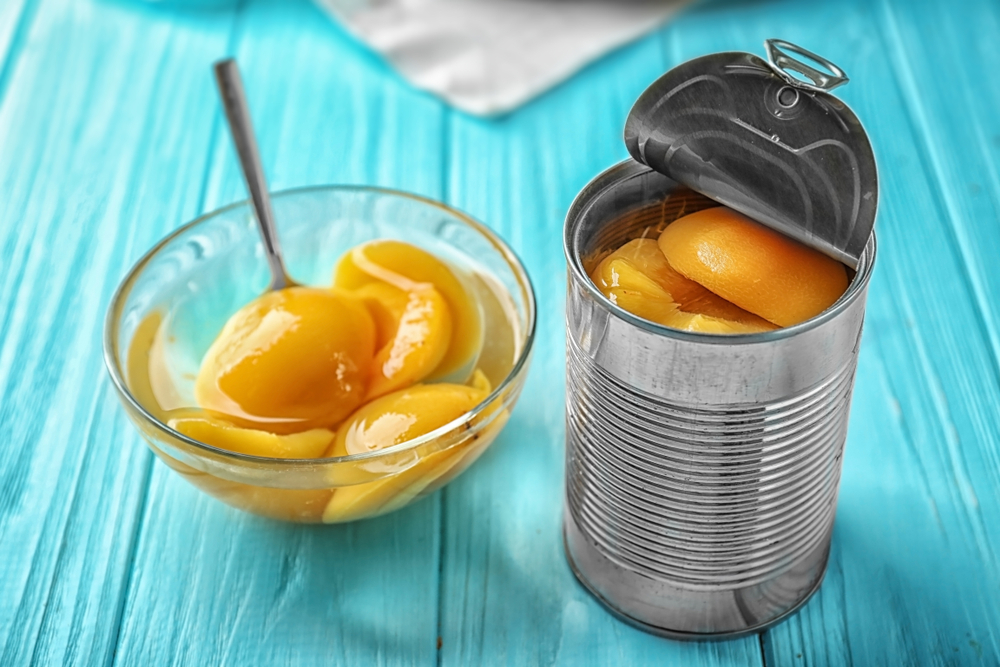
Canned fruit can seem like a quick, healthy snack option, especially when it’s packed with vitamins. However, many canned fruits are packed in heavy syrup, which adds a significant amount of sugar. Even fruit labeled as “lightly sweetened” or “in its own juice” often contains added sugars or artificial sweeteners that can quickly increase your sugar intake.
To make healthier choices, opt for fresh or frozen fruit instead of canned versions. If you must use canned fruit, look for options packed in water or their juice with no added sugar. This way, you can still enjoy the convenience of canned fruit without the extra sugar that could negatively affect your health.
7. Granola
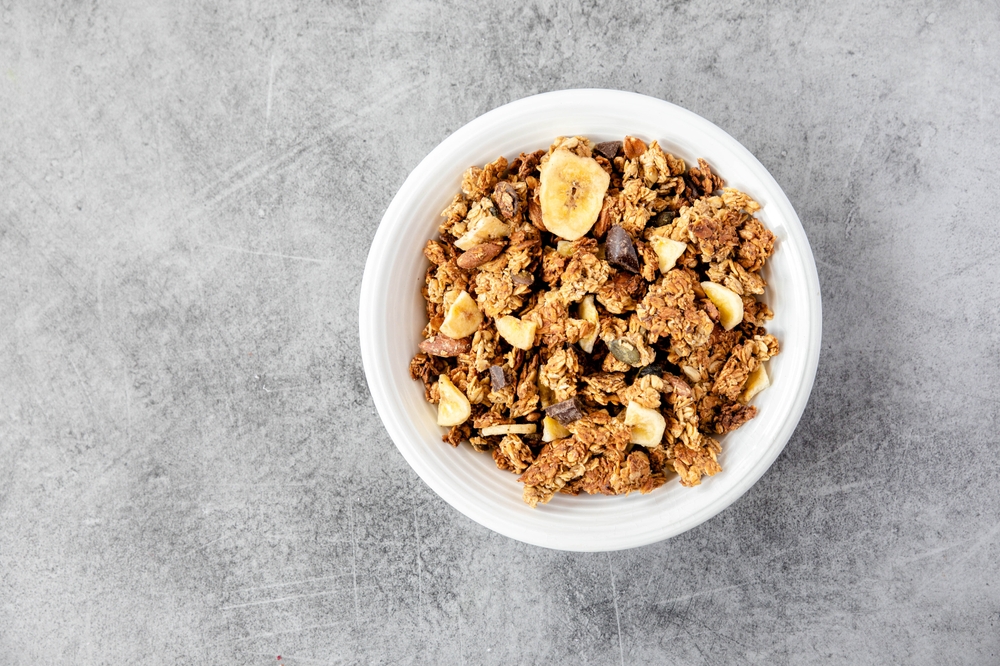
Granola is often seen as a healthy breakfast or snack choice, but many store-bought granolas contain more sugar than you’d expect. The added sweeteners like honey, maple syrup, or brown sugar increase the sugar content, making it more like a sugary snack than a wholesome meal. Even though granola is often marketed as healthy, its high sugar content can contribute to weight gain and blood sugar spikes.
To make granola a healthier option, consider making it at home using whole oats, nuts, and seeds. By controlling the amount of sweetener, you can make a low-sugar version that is just as tasty and much better for your health. Alternatively, look for granola brands that use minimal sugar and don’t add artificial sweeteners or syrups.
8. Protein Bars
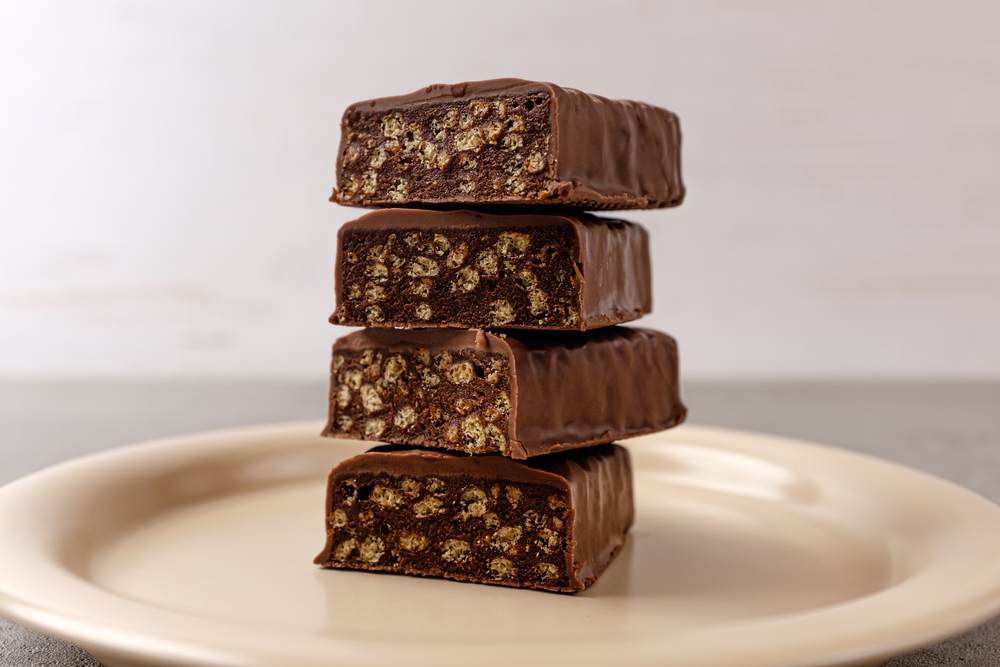
Protein bars are often marketed as a healthy snack or meal replacement, particularly for those trying to build muscle or lose weight. While they provide a convenient source of protein, many of these bars are loaded with sugars to improve taste. Even the “low-sugar” varieties often contain sugar alcohols or artificial sweeteners, which can have similar negative effects on the body.
Before grabbing a protein bar, take a look at the ingredient list. Many bars contain added sugars or syrups that cancel out the health benefits of their protein content. For a healthier alternative, opt for natural snacks like nuts, seeds, or fruit, which offer protein without the excess sugar.
9. Dried Fruit
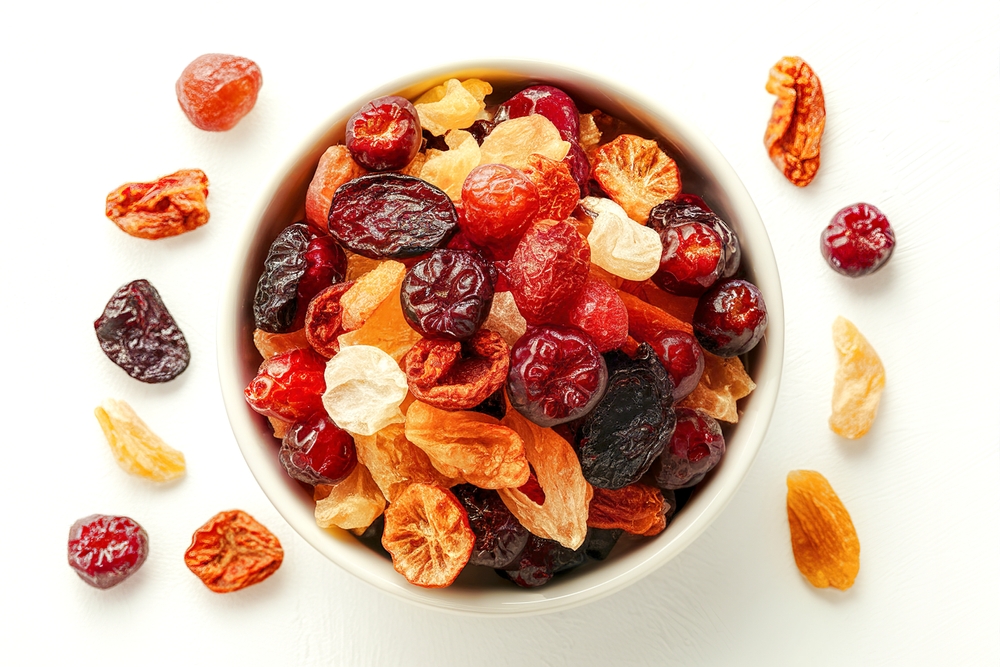
Dried fruit is often seen as a healthy snack because it contains fiber and nutrients found in fresh fruit. However, the drying process removes water, concentrating the sugar content. Many brands also add extra sugar during processing to enhance the flavor, making dried fruit much sweeter than its fresh counterpart.
To avoid hidden sugars, choose dried fruit that is unsweetened and free from added preservatives. Even then, be mindful of portion sizes, as dried fruit is calorie-dense and can cause a spike in blood sugar levels. If you can, opt for fresh fruit to get the most nutritional value and avoid excess sugar intake.
10. Veggie Chips
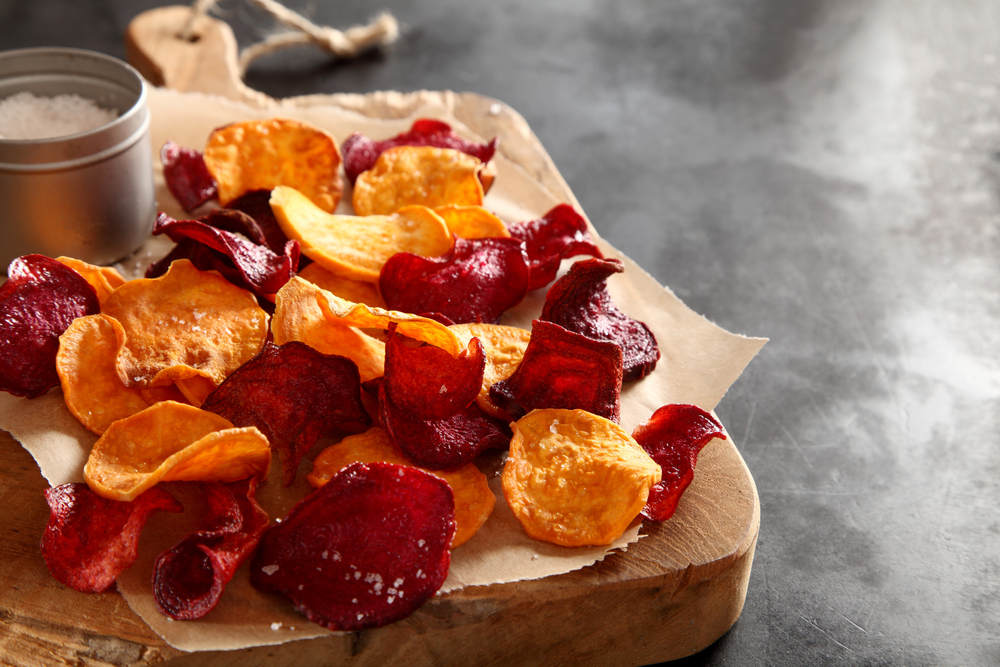
Veggie chips may sound like a healthier alternative to regular potato chips, but they often contain added sugars to enhance flavor. These chips can be high in both sugar and unhealthy fats, which can lead to weight gain and increased risk of chronic conditions. Even some brands that claim to be made with real vegetables still rely heavily on processed ingredients, including sweeteners.
While veggie chips can be a convenient snack, it’s better to make your own at home using fresh vegetables. Baking your chips with minimal oil and seasoning can create a healthier, lower-sugar snack that’s just as satisfying. Look for options that contain no added sugars and focus on whole, natural ingredients for the best health benefits.
11. Breakfast Cereals
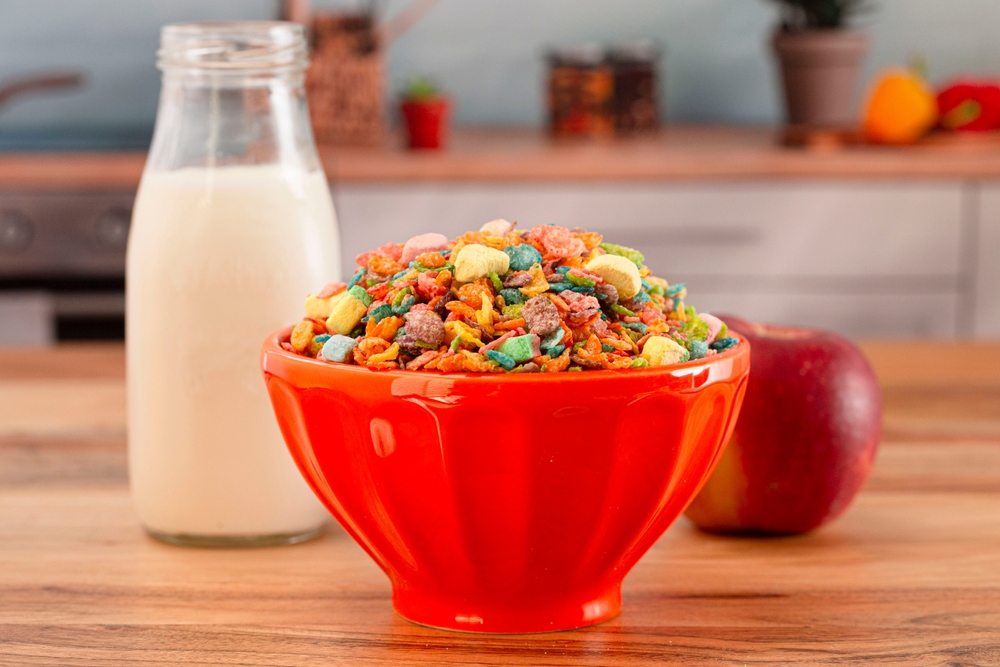
Breakfast cereals, especially the ones marketed as “healthy,” often contain surprising amounts of added sugar. Even cereals that seem to be nutritious, like those made with whole grains or oats, can have high sugar content to make them more palatable. In some cases, cereals marketed as “low-fat” may even contain more sugar to make up for the lack of flavor from fat.
Instead of sugary cereals, opt for whole-grain options with minimal processing. You can also make your oatmeal and top it with fresh fruit for added sweetness. Reading labels and choosing cereals with low or no added sugars is key to ensuring a healthy breakfast.
12. Low-Fat Foods
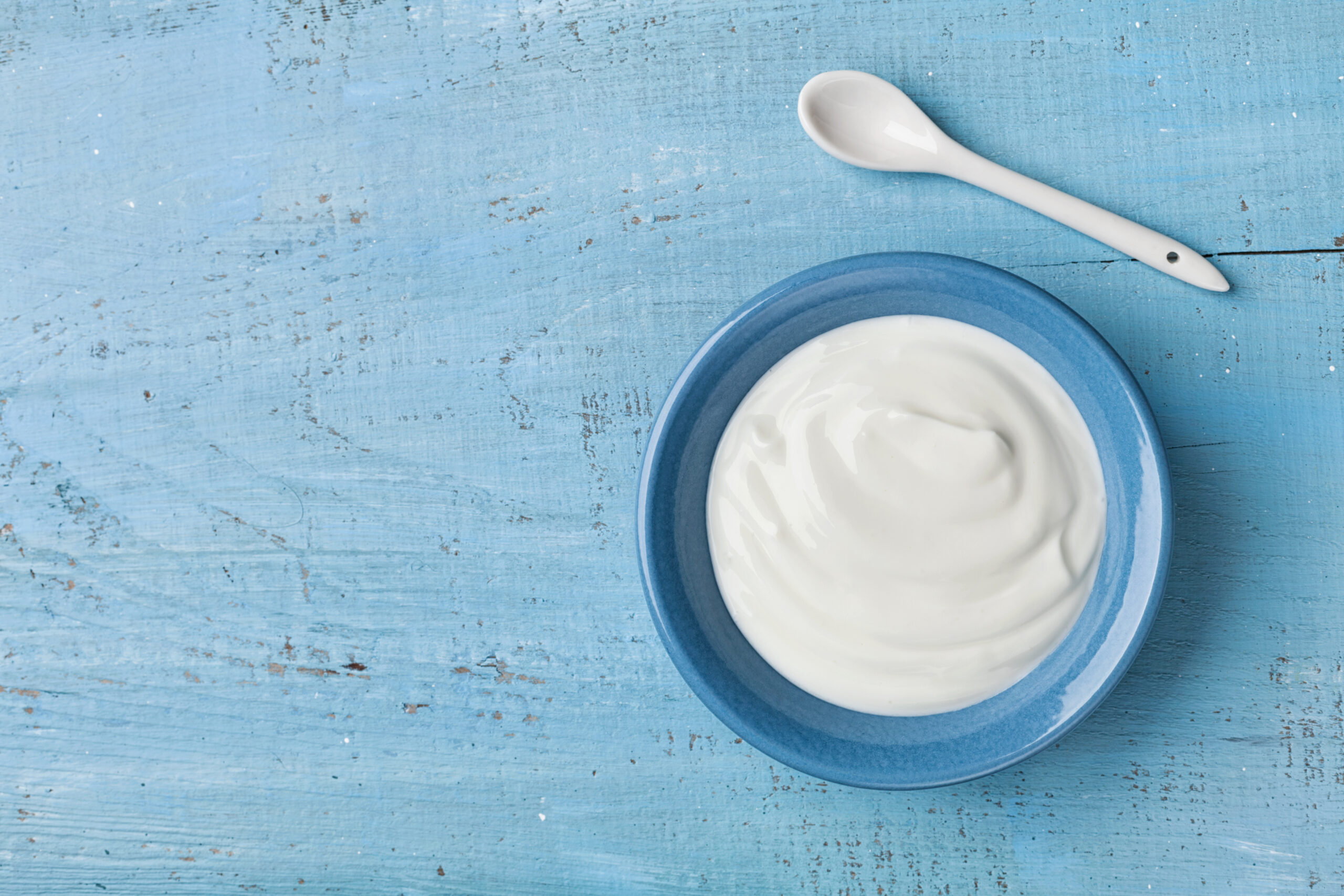
Low-fat foods are often marketed as a healthier alternative, but they can be deceptively sugary. When fat is removed from food, manufacturers often replace it with added sugars to improve taste. These hidden sugars can make “low-fat” versions of foods more harmful than their full-fat counterparts, leading to weight gain and increased cravings.
Be cautious when choosing low-fat versions of products like yogurt, salad dressings, and snacks. These products often contain more sugar than you realize. In many cases, it’s better to choose the full-fat version in moderation, as it can help keep you fuller longer and prevent blood sugar spikes.
13. Energy Drinks
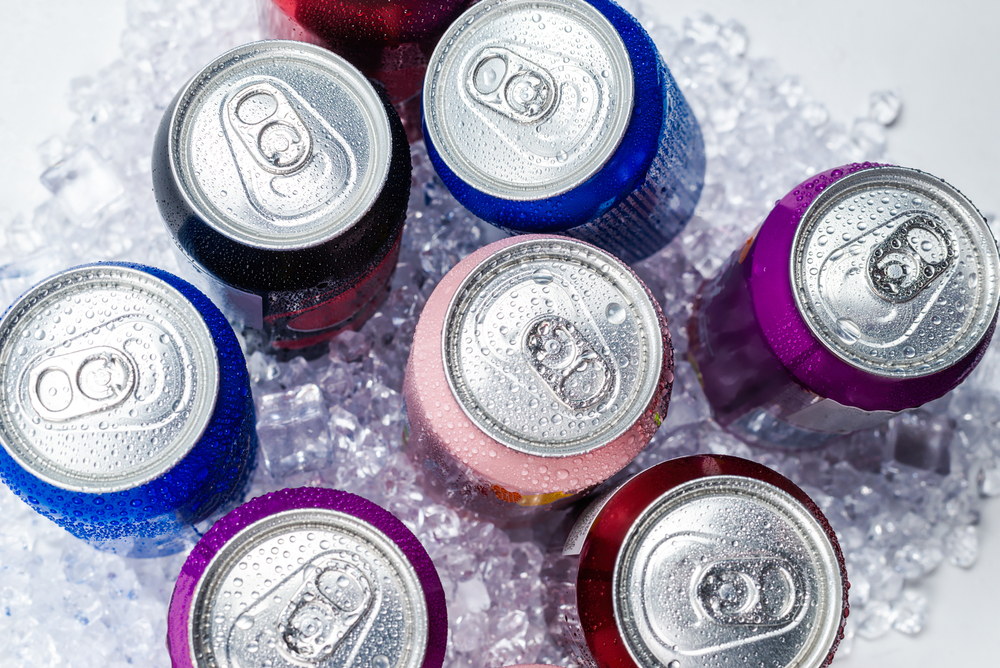
Energy drinks are often marketed as a quick way to boost energy levels, but they are loaded with hidden sugars. These sugary drinks can contribute to weight gain, increased blood sugar, and energy crashes once the effects wear off. Even though energy drinks may contain caffeine or other stimulants, their high sugar content often makes them more harmful than helpful in the long run.
If you need an energy boost, consider drinking green tea or coffee, which contain natural caffeine without the excessive sugar. Water is always the healthiest option for hydration, and adding a splash of lemon or cucumber can make it refreshing without any added sugars. Avoid energy drinks if possible, or limit them to occasional use.
Natasha is a seasoned lifestyle journalist and editor based in New York City. Originally from Sydney, during a stellar two-decade career, she has reported on the latest lifestyle news and trends for major media brands including Elle and Grazia.


